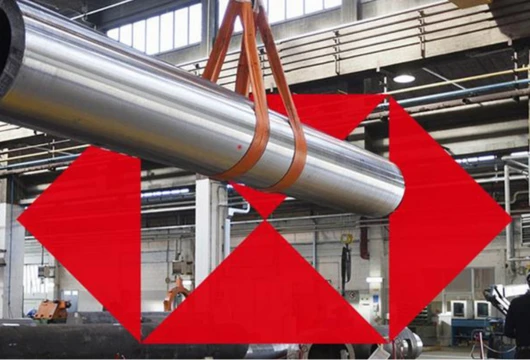Accelerator-Driven Initiative to Decarbonise Heavy Industry Across Asia and the Middle East
In a bold move to accelerate global climate action and industrial transformation, HSBC has unveiled a groundbreaking three-year climate tech partnership in Singapore. The initiative—titled the Future Industries Partnership—aims to support and scale innovative climate technologies that can decarbonise heavy industries such as steel, cement, chemicals, and iron production across Asia and the Middle East, regions central to global manufacturing and urban expansion.
The philanthropic programme brings together an impressive alliance of global expertise: banking giant HSBC, US-based climate accelerator Third Derivative (a subsidiary of Rocky Mountain Institute), and Founders Factory, a UK-headquartered innovation platform that recently expanded into Southeast Asia. Together, they hope to fast-track the deployment of high-impact, scalable solutions to address one of the planet’s most pressing sustainability challenges.
Addressing the Climate Finance Gap in Heavy Industries
Heavy industry is responsible for approximately 30% of global carbon emissions, yet it remains one of the most underfunded sectors in the clean tech space. According to the programme’s launch statement on May 6, these industries receive only 10% of total venture capital focused on climate and a mere 3% of global climate investment.
“The production of industrial commodities is surging across Asia and the Middle East as economies and cities expand rapidly,” explained the founders. “But without a fundamental shift in industrial practices, climate goals will remain out of reach.”
This new partnership directly targets that gap, offering climate tech entrepreneurs not just capital, but also deep technical guidance, investor connections, and access to industrial customers—a potent mix designed to move solutions from lab bench to real-world deployment.
What the Future Industries Partnership Offers
Selected climate tech start-ups will undergo an 18-month programme of technical and commercial support. The accelerator model provides hands-on mentorship to help these companies:
- Build bankable business propositions
- Refine technology readiness
- Navigate regulatory hurdles
- Attract funding from global investors
- Forge pilot projects with industrial partners
These capabilities are crucial for young climate start-ups to move beyond early-stage ideation and enter markets that are traditionally capital-intensive and risk-averse.
Accelerating Industrial Decarbonisation at Scale
According to Rushad Nanavatty, Managing Director at Third Derivative, Asia and the Middle East have the potential to lead the global decarbonisation wave—but only if they unlock innovation.
“By applying our collective expertise and connecting start-ups with investors and corporate partners, we’re enabling breakthrough technologies to achieve commercialisation and scale,” Nanavatty said.
The emphasis on “bankable, scalable and deployable” solutions reflects a growing understanding that climate technology must meet real-world performance and financial criteria to succeed—especially in hard-to-abate sectors like steel and cement.
HSBC’s Role: Mobilising a Global Network
HSBC’s involvement brings serious weight to the initiative. With deep roots in Asian and Middle Eastern markets, and a global commitment to sustainable finance, the bank is positioning itself as a climate innovation enabler—bridging the gap between green ideas and real-world implementation.
Julian Wentzel, HSBC’s Group Chief Sustainability Officer, noted: “By connecting start-ups, corporates, investors, and financial institutions, the Future Industries Partnership aims to use our global network to help take game-changing ideas and make them a reality, opening up opportunities for economic growth.”
This sentiment reflects a broader strategy by HSBC to lead on climate finance while aligning with global net-zero goals.
A Boost for Singapore’s Climate Innovation Landscape
The launch of the initiative in Singapore signals the city-state’s growing role as a regional hub for climate technology and sustainable finance. With supportive policies, a robust start-up ecosystem, and strategic connections to both East and West, Singapore is an ideal launchpad for a programme that spans multiple continents.
Founders Factory, which partnered with Enterprise Singapore in 2024, has already set up a local venture studio focusing on AI, quantum, robotics, and climate tech. This partnership with HSBC and Third Derivative marks a natural extension of its regional ambitions.
George Northcott, President at Founders Factory, called the partnership a direct response to the real-world challenges climate start-ups face: “Breakthrough technologies often struggle to move beyond the lab due to funding gaps, complex regulations, and difficulty accessing industrial customers. We’re tackling those barriers head-on.”
Why This Matters: Climate Tech as a Catalyst
As climate commitments intensify globally, the spotlight is increasingly falling on deep decarbonisation—especially in sectors where electrification and traditional renewables have limited reach.
Climate tech—including innovations like green hydrogen, carbon capture, circular industrial processes, and low-carbon materials—is emerging as the next frontier in the energy transition.
But these technologies are complex, costly, and often take years to commercialise. Initiatives like the Future Industries Partnership provide the patient capital, expertise, and networks required to overcome these structural hurdles.
A Scalable Blueprint for Global Climate Action
The launch of HSBC’s climate tech initiative in Singapore is more than just a regional programme—it’s a scalable blueprint for catalysing innovation, building resilient green industries, and creating climate-positive economic growth.
By empowering entrepreneurs, engaging financiers, and embracing collaboration across sectors, the Future Industries Partnership represents a forward-thinking, inclusive approach to one of the world’s biggest challenges.And as Asia and the Middle East rise as industrial powerhouses, this initiative ensures they can also lead as climate solutions hubs, shaping a greener future for the generations to come.
For more in-depth analysis and inspiring climate news, click here.

